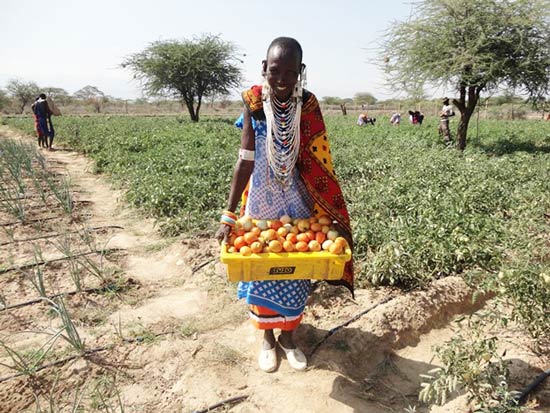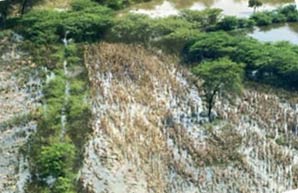
In bid to promote Climate Smart Agriculture (CSA), the Forum for Agricultural Advisory Services – Kenya (KeFAAS) through its membership has strived to provide technical knowledge, management skills, and information services that smallholder farmers need to improve their livelihoods in the rapidly changing global climatic conditions. The approach is seen as a solution to help transform agricultural systems to promote food security under the new reality of climate change. It is an approach that combines practices, technologies, services, processes and institutional arrangements that sustainably increase productivity, support farmers’ adaptation and resilience to climate change, and where possible, reduce emissions of greenhouse gases.
Climate change has been a threat to sustainable livelihoods among millions of people all over the world including Kenya. The efforts of climate change are largely felt by the poor population who solemnly depend on agriculture as a source of livelihood.
Smallholder farmers play pivotal role towards attaining food security if supported and guided accordingly. The small holder farmers have limited access to appropriate knowledge and information and they therefore continue to practice agriculture as a traditional activity, rarely embracing new technologies and innovations. With the extension officer to farmer ratio continuing to diminish after devolving the sector, information flow continues to be challenge.
Against a backdrop of extreme weather wreaking havoc around the world, researchers are warning that increasingly erratic rainfall related to climate change will pose a major threat to food security and economic growth, especially in Africa requiring increased investment in mitigation interventions. Add this to our established fatalistic approach to inputs supply and it will not be difficult to see why this phenomenon will disrupt farmers’ preparedness this year.
In Kenya it is now obvious that unless concerted efforts are made to reduce crippling uncertainty in rain fed agriculture through irrigation, many farmers will in the near future face a losing battle with more hostile and unpredictable climate. In the long run, climate change could affect agriculture resulting in declining crop productivity, in terms of quantity and quality of crops, hunger, and poverty among other negative impacts.
As a developing country, we are vulnerable to climate change because we heavily depend on agriculture, tend to be relatively warm already, lack infrastructure to respond well to increased variability, and lack capital to invest in innovative adaptations. We are confronted by the starkest of dilemmas in having to produce more food efficiently, under more volatile production conditions and have to significantly reduce greenhouse gas emissions from food production to marketing.

Already, unprecedented climate change linked phenomenon has been the waters of lake Baringo submerge farms. Small scale horticulture farmers around Lake Baringo are counting losses after their farms were submerged with water spelling doom for an already food insecure Baringo county.
Agriculture being a devolved function, KeFAAS in partnership with the ministry of agriculture and other actors in the sector are implementing appropriate measures and adaptive technologies that reduce the vulnerability and longer-term climate change. A variety of policies to counter the effects of climate change on agriculture and food security such as greater investment in agricultural research and extension being up-to-date.
KeFAAS is playing a key role in empowering its members by developing their capacities to offer relevant and appropriate extension services to farming communities. The Forum has endorsed CSA and policy advocacy Thematic Working Group with members drawn from civil society organizations, private organizations, alliances or federations of actors in agriculture space, research, academia, development partners, ongoing projects and programs. In bid the TWG will create framework for dissemination of CSA innovations, ideas, information and knowledge generated
